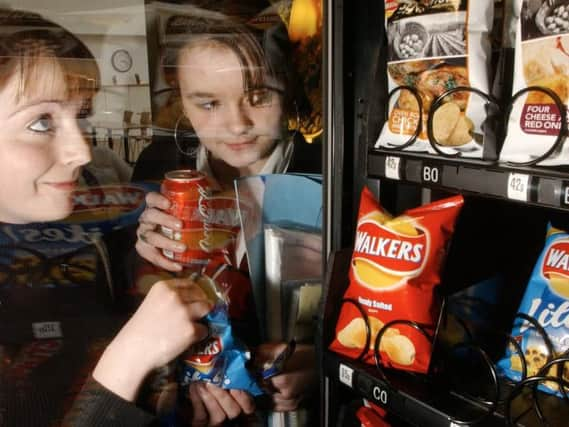Scottish diet 'showing little improvement'


The first study from Food Standards Scotland (FSS), revealed that the decline in sugar consumption from soft drinks has been offset by increases in sugar from other foods. Entitled ‘The Scottish Diet: It Needs to Change 2018’ the report found that around 20 per cent of the calories and fats eaten and around half of sugar intake, still comes from foods such as confectionery, cakes, biscuits, pastries, crisps and sugary drinks.
Meanwhile, the other report revealed that nine out of ten people agree that obesity is a serious problem in Scotland. The updated Situation Report also shows that some people in Scotland are consuming large amounts of calories from alcoholic drinks, with average male and female drinkers consuming 1100 and 810 calories a week respectively from beer, wine and spirits - around half a day’s worth of calories per week.
Advertisement
Hide AdAdvertisement
Hide AdGeoff Ogle, chief executive of FSS, said: “These results are disappointing but unfortunately not unexpected. For diets to change we need to see price promotions rebalanced and shoppers encouraged to buy healthier foods with less sugar, fat and salt, by making these more affordable. What is particularly disappointing is seeing the reduction of sugar in soft drinks being negated by increased sugar purchase from other food products. However, we hope to see more improvements in response to the sugar levy and reformulation programme launched in March 2017.
Alex Neill, managing director of home products and services at consumer group Which?, said: “These findings echo our own research on the unhealthy balance of price promotions which shows that people in Scotland want more action to tackle unhealthy food promotions and reduce fat, sugar and salt levels in food.
“It’s time for supermarkets to take greater responsibility by including more healthier choices in their promotions. It is also vital the Scottish Government continues its resolve to take action on this issue, as part of a wider strategy to make it easier to eat healthily.”
Public health minister Aileen Campbell said: “These reports provide yet more evidence that we must take a bold approach to tackling Scotland’s diet and obesity problem, which is why we are developing an ambitious and daring innovative strategy.”